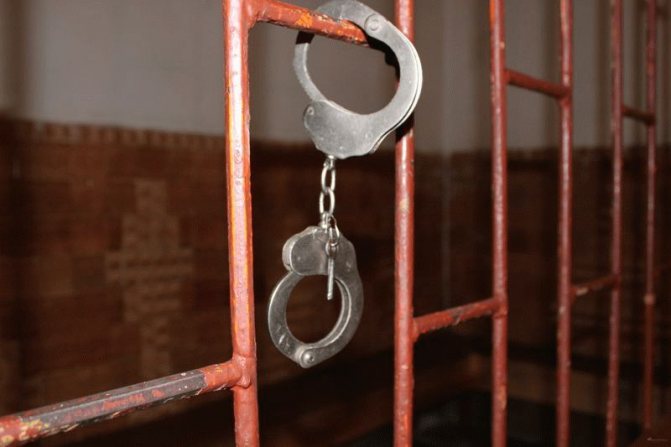A court decision on the collection of alimony that has entered into legal force also indicates that alimony will be paid regularly and that a large alimony debt will never arise. As a rule, debtors try in every possible way to hide their income and, through their actions or inactions, create unpaid amounts.
In this case, Russian legislation provides mechanisms and methods for solving the problem of debts incurred in enforcement proceedings, in particular alimony. Depending on the events that precede the formation of debt, the parties to legal relations are guided by the provisions of the Family Code and the Law regulating the process of execution of proceedings by bailiffs. In particular, evasion of alimony payments may result in criminal prosecution.
Reasons for the appearance of large debts on alimony obligations
According to information obtained during the review of judicial practice, there are four main reasons for the emergence of a significant alimony debt:
- Deliberate actions of the debtor, in every possible way hiding his income and property - this point includes failure to report a change of place of residence or work;
- Force majeure, expressed in the illness of the debtor or difficult financial situation - in this case, documentary evidence is required;
- Action or inaction of the creditor, which is expressed in the failure to provide information about accounts and details for transfers;
- An error by the accounting staff of the enterprise where the defendant in the alimony case is employed. As a rule, this is an incorrect calculation, significantly reduced in the required amount;
The result of such actions is a large debt, which will subsequently negatively affect the debtor.
Time limits for applying to court for compulsory collection
In cases involving the collection of a large alimony debt, the statute of limitations does not apply. That is, the opportunity to file a claim for a penalty, forced collection or recourse to property is present at any time.

The mandatory rule remains the need for a court decision to establish an obligation to collect alimony. Such a statement of claim can be filed before the child turns 18, and the period from which deductions will be made should not exceed three years.
If legally established, the claimant's demands will be under the control of bailiffs and it will be easier to demand their fulfillment.
What should the recipient of funds do?
If the debt continues to grow every day, and the bailiffs do not act, you should not think long about what to do in this case, but try to quickly take drastic measures:
- We contact the bailiff with a request to familiarize ourselves with the enforcement proceedings. If signs of inaction are detected, it is necessary to send a complaint to the management of this unit or to the prosecutor's office. But if it turns out that the bailiff has exhausted the possibilities of his powers and it is impossible to collect funds within the framework of the proceedings, the applicant sends an appeal with a request to calculate the amount of the debt;
- With the received settlement, certified by the bailiffs, he goes to court with a claim for forced collection and calculation and payment of the penalty. The authority is determined based on the amount of debt. If the debt does not exceed 50,000 rubles, the dispute falls under the jurisdiction of justices of the peace, in other cases - city and district courts;
- We receive a court decision to satisfy the requirements and, with a writ of execution, contact the bailiff again. At the same time, we act precisely in anticipation of forced collection with the possibility of seizure of property, its sale at auction or transfer to the claimant.
How to act as a defendant on alimony obligations
The question of what a debtor should do if, as a result of his actions or inactions, a large debt has arisen arises quite often. Fearing liability, many forget about a simple thing: if the debt is not your fault, look for the reasons why it appeared. As a rule, if a debtor wants to reduce the amount of debt that was not his fault, he must submit the following documents to the court:
- income certificate;
- a certificate from the accounting department about calculations - if they were the reason for incorrect accruals;
- medical certificates regarding health problems that interfere with work activity.
In this case, the debtor may demand to reduce the amount of the resulting debt or cancel it completely.
What consequences do debtors expect?

In addition to civil disputes, there are also administrative and criminal offenses. In the event of malicious non-payment, the debtor may first be subject to fines and then imprisonment.
Let's take a closer look at what can lead to such a situation:
- Administrative liability for failure to provide information necessary for the normal course of enforcement proceedings. This includes: failure to report a change in place of work and residence, change in income.
- Criminal liability, which occurs in four successive stages:
- Detection of a debt, the size of which is significant for the collector. After this, the applicant requests the bailiff to calculate the debt and send the debtor a demand to pay the debt under threat of criminal liability;
- If the debtor fails to act within the next 6 months, the applicant repeats the actions provided for in the previous paragraph. Nothing more should be done except to seize the debtor’s property as an interim measure;
- If the defendant repeatedly fails to act in enforcement proceedings, the bailiff is obliged to issue a report on the discovery of signs of a crime. In this regard, all materials related to the debt are sent to the internal affairs department for investigation.
- During the consideration of a criminal case, the applicant has the right to file a civil claim, which will also include a penalty, forced collection with recourse to the real and movable property of a person who will already be in the status of a defendant.
To avoid falling into child support debt, it is important to remember what to do first and what can wait. Many enforcement documents disappear due to the personal non-participation of the parties to the proceedings. If a claimant wants legal enforcement of claims, he must understand that collection is not always easy. There is no need to be afraid to develop events and defend the rights of your child.
Submitting documents to court
Dear readers! Our articles talk about typical ways to resolve legal issues, but each case is unique.
We know how to easily resolve the issue of non-payment of alimony. To do this, there are a number of simple and effective steps that the child’s mother will need to take in order to quickly cope with this problem.
Also remember that from January 1, 2021, the court may reduce the amount of the penalty or alimony arrears. This is done at the request of the alimony payer. Most often this happens if he is seriously ill or has a poor financial situation.
In addition, starting from 2021, the amount of the penalty for each day of delay has been reduced. Previously it was 0.5 percent, now it is 0.1 percent.
If the child's father refuses to voluntarily pay child support for his children, you will have to protect their rights in court.
The simplest solution in this case would be to issue a court order. To do this, submit an application to the Magistrates' Court, indicating your requirements. This application will be reviewed within five days, after which a decision will be made. If the child’s father does not object, then the court order will come into force and you can give it to the bailiffs for execution.

In the application, indicate your passport details and information about the defendant. The application must also include information about your children. Don't forget to include a copy of your birth certificate and a copy of your marriage registration or divorce certificates.
If the child's father does not agree with the demands that you have made of him, the court order will be canceled. In this case, you will need to file a claim with the same court. Attach to it the same documents described above. The trial of the case may last several months. After the decision is made, you can receive a writ of execution and give it to the bailiffs.
Subtleties of enforcement proceedings
After enforcement proceedings have been initiated (you must submit an application to the enforcement service to initiate proceedings and attach a copy of the court decision), the debtor receives a copy of the relevant decision from the bailiff.
If the debtor does not pay the required amount specified in the resolution within 24 hours, then this amount is considered arrears of alimony. At the same time, the bailiff sends a summons to the debtor to conduct an explanatory conversation on the debt repayment process. The summons contains demands for payment of alimony, taking into account the debt, and the provision by the debtor of the most detailed information about himself. At the same moment, the bailiff begins a search for the debtor’s property, for this he sends letters with requests to the following authorities:
- traffic police;
- To the state registration authorities of real estate rights;
- Tax Inspectorate;
- Municipal Department of Internal Affairs, to the information bureau department;
- Pension Fund of the Russian Federation, regional branch.
If the bailiff does not have information about the location of the debtor, then the bailiff, within three days, announces a search for him.
Liability for non-payment

If the alimony payer does not fulfill his obligations in full, the court may rule on malicious evasion. As a rule, this happens if payments are not made for more than three months. Also, such a decision can be made if the child’s father is wanted or is hiding information about his location.
In such a situation, in addition to debt collection and penalties, the alimony payer may be brought to criminal liability. In some situations, the court may also decide to terminate parental rights.
How to deal with persistent defaulters
As stated above, liability for malicious evasion of alimony payment is provided for in Article 157 of the Criminal Code of the Russian Federation. In order for such liability to be assigned, the fact of the “maliciousness” of the evasion is important. Judicial practice identifies several events that make evasion malicious:
- Changing places of residence in order to evade paying alimony;
- Decrease in actual income received;
- In the absence of work - evasion of employment through the employment center;
- Putting the debtor on the wanted list;
- If the alimony debt exceeds 9 months (based on practice, the term “significant debt” is applied to this period);
- If the bailiffs issued a warning about the possibility of criminal liability, but payments are never made.
We suggest you read: Is it possible to deregister a car without a car?
If the debtor has been prosecuted, he may be assigned 1 of 4 types of sanctions:
- Up to 1 year of correctional labor;
- 120-180 hours of compulsory work;
- Up to 3 months of arrest;
- Up to 1 year of imprisonment.
And even the very fact of having a criminal record can significantly damage a person’s reputation, as well as limit some of his rights, for example, the right to travel abroad of the Russian Federation (a bailiff can temporarily restrict this right, even without a criminal record, as a method of stimulating the debtor to make payments).
Criminal prosecution under this article is the basis for initiating proceedings for deprivation of parental rights.
Initiating such a procedure is possible provided that the mother submits an application to the court and a certain package of documents, which includes (if there are several children in the family, each child will have their own court case, deprivation of parental rights for several children at once is unacceptable):
- Child's birth certificate;
- A document confirming the divorce;
- A certificate from the educational or preschool institution that the child attends, stating that its employees did not see the child’s father bringing him, picking him up, participating in parent-teacher meetings, and so on;
- Testimony of several witnesses (neighbors, relatives, friends), drawn up and signed, as a rule, by employees of the housing office or HOA, that the father does not take part in the life of the child;
- Certificate about the amount of alimony and the period of arrears (issued by the bailiff).
After submitting all the necessary documents, the court will make a decision on deprivation of parental rights, based on all the attached evidence and testimony.
Some time after the deprivation of rights, the father can restore them, also through the court. This requires sufficiently compelling reasons, supported by substantial evidence.
If the amount of debt is already quite large, and the bailiffs cannot or do not want to help you, you can try contacting a collection agency. Of course, this option should be considered as a last resort, because debt collectors charge quite large commissions for their services. Collectors work either by buying out the debt or helping to collect it for 25-40% of the amount collected.
In this case, the underpaid amount is credited to the debt, and the mother must take the actions applicable to such a situation. They are described above. Including filing an application for a penalty.
If the husband does not work, then it is necessary to submit an application to the bailiff, describe this fact, and he will find out why the husband is not officially employed and is not even registered with the employment service (after all, the amount of unemployment benefits also falls under deductions for alimony). If the husband transferred all the property remaining after the division during the divorce to his parents, then alimony cannot be imposed on this property.
The only option is if he transferred the property after the court’s decision to order alimony payments, you can try to prove this fact as malicious evasion of alimony payments. But this is a rather complicated procedure and for each specific case you need legal advice.
Questions and answers
Olga My ex-husband must pay 7,000 rubles every month for alimony to his son. My husband has been avoiding payments for a year now. During all this time I did not receive a single ruble from him. What can I do in this situation?
Elena The court decided that the ex-husband is obliged to pay alimony for his daughter in the amount of 4,000 rubles every month. My husband doesn’t officially work anywhere and doesn’t pay alimony normally. Can pay 1000 rubles once every two months. And this story has been going on for six months now. Is it possible to file a lawsuit to have him prosecuted?
Nastya filed for divorce three years ago. She also filed documents to collect alimony from her ex-husband for his daughter. The court satisfied my demands. According to the court decision, the husband must pay twenty-five percent of his salary monthly. There have been no payments from him during all this time, and he also avoids contact with me. Can I apply to the court again for alimony? Is there any liability for non-payment?
Svetlana My husband must pay alimony monthly. The writ of execution is with the bailiffs. For eleven months now, my husband has not paid anything at all. Every time I ask the bailiffs what they are doing, but they don’t answer normally. They say that the spouse now has no permanent income and they cannot do anything with it in this situation. Where can I go to get some results?
Child support for a second child in 2021
Contents: 1. Calculation of the amount 2. Voluntary settlement 3. Judicial option 4. Change in the amount of payments 5.
I applied for alimony several years ago, throughout the entire time I paid 1000 rubles every month. Documents were provided that it does not work officially. Can I demand an increase in the amount of alimony or force me to do forced labor? What kind of application do I need to write?
No you can not. You can apply to the court to collect the debt that has accumulated.
My husband hasn’t paid child support for 4 years, which court should I file with?
To the magistrate's court at the place of residence or registration of the child's father.
My husband doesn’t pay alimony, which court should I go to? Lives on Glushko, registered in the Arsky district?
Have you received a writ of execution for collection? If not, then you must first file a claim with the magistrates’ court to establish alimony. Then receive a writ of execution, take it to the bailiffs, they will begin enforcement proceedings.
I applied for the elements and was awarded 5426 rubles. Doesn’t work for 4 months and doesn’t make contact! He says the bailiffs will give him a hard time! Can I submit a larger amount to pay more?
You can apply for an increase in size, but it is unlikely that your requirements will be satisfied if a decision has already been made on this issue. Did you apply to set the amount in a flat monetary amount or as a percentage of income?
Hello! My ex-husband has not paid alimony for more than a year. He went to live in another region. The bailiffs say that they do not calculate penalties. Where can I go in this case? How can I force him to pay?
You must calculate the penalties yourself when you write a statement of claim for debt collection. You cannot force a person to pay, you can only submit writs of execution to the bailiffs so that they collect the debt from his bank accounts. Bailiffs also have the right to sell the debtor’s property and transfer the money from the sale to you. You can also file a claim for deprivation of parental rights if the father is a persistent defaulter.
11 years ago I divorced my husband. I filed for alimony. I took IL to the bailiffs, and for 5 years they didn’t transfer a penny. Then I received a notification that my ex-husband had a child support debt of 280 thousand rubles. At that moment, my husband and I made peace, I felt sorry for him, I thought we would live. I refused the money in writing. A couple of years later we separated again. He paid alimony every six months, 2 thousand, i.e. for the year 4 thousand in total. Can I claim debts for all years?
Try to draw up a statement of claim in court, attach evidence and documents that you have. Everything will depend on what decision the judge makes
Take the writ of execution to the bailiffs or to the accounting department at your place of work so that they can deal with collection issues.
My ex-husband has been avoiding paying alimony for 2.5 years. The bailiffs don't do anything. To my question about opening a criminal case against him, they answer that they cannot open one since he has never appeared before them. What can I do in this situation?
Write a complaint against the bailiffs to management and the prosecutor's office. You also write a request to the prosecutor’s office so that they assist in initiating a criminal case.
The writ of execution is with the bailiffs. I applied for alimony on November 10, 2014, the first transfers were on January 15, 2021. I called the bailiffs, the answer was that these were all the funds that were available. There is no more money coming from him. I want to submit a review of the writ of execution to establish a fixed amount. Is this realistic in my situation?
I can’t tell you because I haven’t seen your documents. If the child’s father receives an official salary, then it is almost impossible. Go to the bailiffs, find out what they did, where they got this money from. If it’s from your salary, then why are there no more write-offs? If you know where the child’s father works, then you can pick up the writ of execution from the bailiffs and take it to the accounting department at your place of work so that child support will be transferred to you automatically.
I applied for alimony, at first I paid 6500)) then I bought a certificate that it works, and the salary is 6000 thousand, they started paying me 1500 but not monthly)) I don’t have enough of this, what should I do?
Oksana, try to discuss this situation with the bailiffs first. Perhaps they can find his real job and income. You can threaten to contact the prosecutor's office and initiate a criminal case for forgery of documents.
Leave a comment X
About our site
The information on the site is provided for informational purposes only. Please consult with an attorney before making any decisions. The site management is not responsible for the use of information posted on the site.
How to get your child support debt paid
How to achieve payment of alimony arrears if the alimony payer does not want to make concessions and pay money? First of all, it is worth remembering that the entire procedure for collecting funds from the debtor is the responsibility of the bailiff. That is, the recipient of the funds does not have the right to perform any actions that could induce the other party to make payments to repay the debt.
Therefore, after receiving the writ of execution, the claimant needs to contact the Federal Bailiff Service and initiate enforcement proceedings in order to collect the debt from the alimony payer. If there are no payments at all, then after some time you need to contact your bailiff and inform him about this situation to open a case.
Informing the bailiff about the existence of a debt can be done in several ways:
- The easiest option is to visit the bailiff on the reception day to notify in writing or orally about the debt that has arisen to pay alimony. In this case, the collector will have the opportunity to personally receive an answer to the question of what measures will be taken against the defaulter.
- If for some reason the bailiff has not taken any action to obtain funds for alimony from the payer, the claimant has the right to contact him again, demanding to familiarize himself with the materials of the enforcement proceedings.
When familiarizing yourself with the case materials, special attention should be paid to the work with documents that the bailiff carried out in order to defeat the defaulter and repay all alimony debts. If during such an inspection the claimant sees that exhaustive work has been carried out, then all that remains for him to do is wait for the results.
If the recipient sees that the bailiff will not fulfill their duties, for example, the case materials do not contain requests and resolutions containing measures applied to the debtor, the citizen has the right:
- Draw up a petition to apply liability measures to the debtor.
- Notify the bailiff of the possibility of filing a complaint about his inaction to higher management, the court or the prosecutor's office.
The father does not pay child support and the bailiffs cannot collect it - what should you do?
In Russia, 65% of families break up. These are the statistics. If you are left with a minor child, but do not receive financial assistance from his father, we will tell you where to go.
The main condition for successful collection of alimony payments is impeccable legal literacy. Any violation of the law will be used by the debtor to his advantage. In other words, you need to rely solely on existing bills. And the main one (RF IC) obliges parents to take care of their minor children, including financially. However, fathers who left their family are trying with all their might to evade responsibility - they get jobs with unofficial salaries or are even listed as unemployed. One option is to collect fixed alimony payments. Your task is to prepare receipts from stores, housing departments, schools, sections, i.e. document your expenses for the child. In 97% of cases, the court decision will be made in favor of the alimony recipient. Typically, your ex-spouse will be responsible for paying 50% of the expenses you incur.
The next option is that the debtor is officially employed. In this case, the bailiffs send a writ of execution to his work to collect alimony. But there are often cases when a formidable paper with an order to repay the debt is lost in the depths of the accounting department, secretariat, or ignored by the employer. In such a situation, request an inspection of the organization (accounting) by the bailiffs regarding the transfer of alimony. To do this, you need to make a corresponding request (by registered mail) to the FSSP office located in the area where your ex-spouse works.
All these measures apply when the whereabouts of the ex-spouse are known. A more complicated option is that the father does not pay child support, and the bailiffs cannot collect it, because... they don't know where he is. Of course, they will take the necessary actions to find it (and more often they will imitate its visibility), but without your participation the result will be zero. Therefore, we recommend that you familiarize yourself with the options for searching for a debtor yourself.
So, the child's father disappeared in an unknown direction. In this case, the bailiff conducting the proceedings puts him on the wanted list - the corresponding paper is sent to law enforcement agencies. In addition, the law does not prohibit conducting independent searches. To do this, you need to contact the FSSP again and get a certificate from them with a debt calculation (calculated based on the average salary in the region). Moreover, you can look not for the alimony provider himself, but for the property that belongs to him. You can find it in several ways:
- You have information that the debtor has opened an individual entrepreneur or LLC. Their address or details can be found at the tax office.
- The defaulter owns real estate (garage, dacha, land, etc.). You can clarify this data by contacting the registration or cadastral chamber.
- According to your information, the ex-husband owns a car. You can check the details at the traffic police department.
In addition, mutual friends, acquaintances, and relatives can tell you where your ex-husband is “lost.” If one of the options makes it possible to establish the location of the defaulter or his property, the first thing to do is notify the FSSP. After all, you cannot take away the debtor’s belongings, his real estate, or transport without involving officials. Having found the alimony provider’s property, make a claim that you are claiming it in whole or in part. And at the same time declare that the property and the car should be seized. Otherwise, the debtor may sell all the property and disappear again.
Searching for a debtor often takes a long time. For this period, you can apply for an increased benefit at the territorial social protection office. To do this, a statement is written to the head of the unit with a request to assign an increased allowance until the debtor is found. The request must be confirmed with a certificate stating that the search carried out by the police did not produce results. In the future, the expenses incurred by the state are reimbursed by the ex-husband.
By the way, when neither the police nor the bailiffs can find the debtor, this is grounds for declaring him missing.
To do this, you need to go to court with the same certificate of unsuccessful search. If the request is granted, apply for a pension for the loss of one breadwinner.
According to current legislation, only bailiffs are involved in collecting alimony payments. But there is a nuance - if the claimant himself is not interested in the progress of the case, then they will not work at full capacity. There are often cases when, if the recipient fails to act, officials also fail to act. Therefore, if you have doubts about the competence of an FSSP employee, you can send a protest to higher authorities: the senior bailiff, the bailiff inquiry service and even the prosecutor’s office.
It is better to write complaints to all three authorities at once. We recommend sending registered letters - notifications in which the recipient signs, allows you to record the fact of delivery of the document.
FSSP employees are given 30 days to fulfill your demands. If they continue to fail to act, write a complaint to their immediate superiors, and send a copy to a higher authority. By the way, in addition to the alimony itself, you are paid interest for non-payment and are compensated for the money spent on a lawyer (if you contacted one). The penalty is calculated daily in the amount of 0.5% of the total debt - Art. 115 RF IC.
As you can see, forcibly receiving alimony payments even under a writ of execution is not an easy task. The best option remains the voluntary payment of child support by the second parent. The concluded agreement will save time - you won’t have to go to the courts and collect documents and money, you won’t need the services of lawyers, and this will save your nerve cells.
The bailiff service is required to tell the debtor what the consequences of failure to pay alimony will be, at least twice. But, perhaps, going to court and the FSSP can be avoided if you are convincing and are able to explain to your ex-spouse that if he refuses to pay alimony, he faces:
- ban on traveling outside the country;
- deprivation of the right to drive a car;
- imposing a fine of 100 minimum wages (if the bailiffs discover concealment of income).
These are administrative measures. However, when the debtor does not pay alimony for more than four months, more serious sanctions may be applied - criminal liability. In addition to long-term non-payment of salary, the basis for the attack may be concealment of income and evasion of meetings with bailiffs.
Depending on the circumstances of the ex-spouse’s case, in accordance with Art. 157 of the Criminal Code of the Russian Federation, they can punish:
- Forced labor for up to 12 months.
- Community service (terms from 20 to 180 hours).
- Imprisonment (arrest) for up to three months.
- Serving a sentence in a correctional institution for a period of 1 to 3 years.
In addition, such a parent can (and sometimes needs to) be deprived of parental rights. But this measure is educational in nature and rarely forces the child support provider to pay the money due to his child. As practice shows, the most effective measure of influence remains the threat of criminal punishment.
How to make the bailiff work?
If you know information about the possible location of the debtor or you know people who may have such information, you can contact the bailiff with a statement.
This statement is drawn up in free form. In the “header” you indicate the position of the performer and his full name, below write your details, including a contact phone number. In the text of the application, indicate all the information about the places where the debtor may be located.
“As part of the enforcement proceedings initiated by resolution No. 1 of June 1, 2019, my ex-husband Ivanov Ivan Ivanovich was put on the wanted list. I have information about his possible location and am providing this information to assist the investigation. According to the data known to me, he may be in the apartment of his cousin, full name, at the address (specify address), or in the private house of his aunt, full name, at the address (specify address).
If you received information from friends, ask them in advance whether their information can be used to include in the application. Perhaps in the future, the bailiff will want to clarify some additional information from them.
After writing your application, be sure to make a copy of it and register it at the reception. The copy will be marked with acceptance, dated and signed by the person accepting it.
This may come in handy if the bailiffs do nothing to collect alimony arrears.
There are several reasons why your case is not progressing:
- The bailiff simply lacks practical experience;
- He is overloaded with things to do and simply doesn’t have time;
- And, unfortunately, the most common case is a bribe. The bailiff receives a monetary reward from the debtor for not doing anything.
In any case, if things don’t work out, you need to file complaints with the bailiff’s senior management. To begin with, you write a statement in any form, where you indicate that the two-month period specified by law has long passed, and the bailiff has repeatedly extended it, without any particular reason.
An application with a complaint is submitted in the following order (if the person you are contacting ignores the application or “let it go on the brakes,” you submit it to the following authority):
- Senior Bailiff;
- Chief bailiff of a subject of the Federation;
- Chief Bailiff of the Russian Federation.
If the divorced spouses came to an agreement regarding the payment of alimony and entered into a notarial agreement, but arrears arose regarding payments, then the mother has the right to receive a penalty in the amount established by this agreement.
If the payment of alimony was forcibly ordered by the court, then a debt arose, then in this case the mother can apply to the court with an application to collect a penalty for alimony payments. The amount of the penalty is determined by Art. 115 of the Family Code of the Russian Federation (hereinafter referred to as the RF IC) and amounts to 0.5%, accrued daily on the amount of alimony debt.
Example: The court ordered alimony payments amounting to 25% of the debtor’s salary. His income certificate indicates that his salary is 20,000 rubles per month. Thus, the monthly alimony payment will be: 20,000 x 0.25 = 5,000 rubles. The court decided to begin alimony payments from 02/01/2019. At the time of determination of the debt - 07/01/2019, it amounted to: 5000 x 4 months. = 20,000 rubles. We calculate the penalty:
- As of March 1, 2021: 5000 x 31 days x 0.5% = 775 rubles
- As of April 1, 2021: (5000 5000) x 30 days x 0.5% = 1500 rubles
- As of May 1, 2021: (5000 5000 5000) x 31 days x 0.5% = 2325 rubles
- As of June 1, 2021: (5000 5000 5000 5000) x 30 days x 0.5% = 3000 rubles
We invite you to familiarize yourself with: The procedure for collecting debt on a loan
Total for 4 months, the penalty will be 7,600 rubles.
The penalty does not have a statute of limitations for collection, so you can apply to the court at any time. But it is better to do this with little frequency, since a huge amount of penalties is unlikely to help resolve the case of arrears of alimony.
Additionally, according to Art. 115 of the RF IC, you can claim compensation for losses incurred that were caused by the fact of non-payment of alimony. But this is a very complex process that requires confirmation of the connection between losses and alimony arrears.
Example: a connection confirming losses caused due to non-payment of alimony may be a documented deposit for the purchase of some thing necessary for the child, but not paid in full due to arrears of alimony. Such a deposit must be tied to the timing of alimony payments.
There are circumstances in which the debtor cannot pay alimony. Confirmation of these facts in court may serve as a basis for reducing the amount of debt, as well as refusing to accrue a penalty. These include:
- Long-term, serious illness of the debtor;
- Leave from work due to lack of funds from the employer to pay for labor;
- Circumstances in the family that prevent payments, etc.
If none of this happened, the penalty was assessed, and the amount of the debt was fixed, but the father still does not pay for a long time, then he can be brought to criminal liability by the bailiff under Article 157 of the Criminal Code of the Russian Federation (hereinafter referred to as the Criminal Code of the Russian Federation).
No matter how sad such a story is, nevertheless, none of us knows what can happen at any time.
In our case, when a decision is made between spouses to pay the debt for material resources for a child, if a fatal accident occurs, then it is necessary to know who will pay the alimony debt after the death of the debtor?
There is no direct answer to this question. Quite often, the minister of Themis may make a decision not in favor of the ex-wife, canceling all debts and necessary alimony payments for the child.
Of course, additional situations may arise in judicial practice.
For example, in one case, when an ex-wife filed a lawsuit for a debt in payments, her ex-husband took full responsibility, but after some time he had an accident that led to his death. After the ex-husband died, property was divided between all the heirs.
The first child and children in the second family with a new wife each received a third of the cost of the deceased father’s apartment. But, the court made an additional decision, which obligated the members of the second family to continue paying the debts of their late husband to the child.
Therefore, in every situation there are two sides to the coin, and perhaps if you find yourself in a similar situation, the court will be on your side.
How to force bailiffs to collect alimony debt?
To collect alimony from arrears, you no longer need to go to court, because it will refuse to accept your application even if the issue has been settled and alimony has been paid off accordingly.
The only exception would be when the payer concealed income from which money could have been siphoned off. Then the one who receives alimony can fully count on satisfying the requirements for the determination and reduction of alimony debt.
The bailiff finds out the availability of property or money with which to pay debts. It is he who determines the place where the payer works and makes a claim to collect wages.
As you can see, bailiffs are fighting to collect debt for paying money to raise a child. This question does not go unnoticed. Feel free to file claims with the servants of Themis in order to restore justice as soon as possible.
We told you how to submit an application to the bailiffs for debt collection here.
How to collect alimony arrears if the debtor has no property? This is the most difficult question. Unfortunately, there is no definite answer to this.
Our legislation also does not provide for criminal liability for paying off alimony debt in the absence of property. When the debtor has no property, the matter takes on a tinge of hopelessness.
A penalty is a tool that motivates the debtor to repay the debt. It is accrued as a result of late payment of alimony. The amount of the penalty is established by the Family Code of the Russian Federation (Article 115). It is 0.5%, calculated by court decision on the amount of debt for each day of delay.
After the initiation of enforcement proceedings, for which an application is submitted to the enforcement service, the payer receives a copy of the resolution. If he does not pay the specified amount per day, it goes into the category of debts, and the debtor is sent a summons for a conversation with the bailiff. At the same time, the bailiff begins to search for the debtor’s property with which he can pay off the debt, for which letters are sent to the government agencies in charge of the property. If there is no information about the whereabouts of the debtor within three days, he will be put on the wanted list.
The amount of debt will be determined on the basis of the debtor's wages during the period for which alimony is collected. If there is no documentary evidence of income, it will be calculated as the national average at the time for which the debt is accrued. If the debtor is an individual entrepreneur, the calculation is carried out according to the tax return.
But all these are measures in relation to property, designed to ensure payment of the debt, and what measures can be applied directly to the debtor if the alimony debt was incurred maliciously and could have been paid, what to do to bring him to justice, and how to achieve payment alimony debt?
Penalty
Collection of alimony for the past period - legal realities

The obligation of parents to support their children until they reach adulthood is enshrined in the Family Code, and it remains regardless of where and with whom the children live. For parents living separately, this obligation is expressed in the form of alimony. But after a divorce, many parents “forget” to transfer the money they are entitled to into their children’s accounts, and they have to force them to get it.
Dear readers! Our articles talk about typical ways to resolve legal issues, but each case is unique.
If you want to find out how to solve your particular problem, please contact the online consultant form on the right or call the numbers below. It's fast and free!
Deadlines for paying alimony
From what time does child support begin? As a general rule, the obligation to pay child support is imposed on the separated parent from the moment of divorce . But, in some cases, alimony may also be imposed within a marriage - for example, if the parent does not actually live with the child.
In both cases, the requirement to pay alimony must be supported by a voluntary agreement or an appropriate court decision.
The obligation to pay alimony terminates automatically in the following cases:
- if the child is 18 years old or has acquired legal capacity before this time in accordance with a court decision;
- if the child has been adopted;
- if the recipient or payer of alimony has died;
- if the child has committed an intentional crime against the payer.
You can read about the procedure for divorce if you have children and various situations related to this in this article.
If an agreement was concluded between the parents, then the payment of alimony may be terminated for other reasons specified in the document: for example, it may be a specific period or a certain event, for example, the child receiving an independent income.
In some cases, the amount of alimony may be reduced , but not terminated, for example:
- the payer lost his job, became disabled or retired;
- the amount of child support is too large to actually meet the needs of the child;
- the child began to receive income;
- the parent living with the child has remarried, but the child has not been adopted.
Thus, the payment of alimony begins from the moment the court order comes into force or the agreement begins, and ends in accordance with the law or in connection with the occurrence of circumstances taken into account in the agreement.
Conditions for exemption from payments
You can legally not transfer payments for the following reasons or conditions:
- The child has become an adult;
- Emancipation – achieving adult status through entrepreneurial activity or marriage;
- Death of the recipient;
- Restoration of working capacity by a person who received financial assistance in connection with its loss;
- During the establishment of paternity, it turned out that the payer is not his natural father;
- The children have moved to the payer or are fully supported by the state.
Is it possible to recover alimony for the past period through the court?

The obligation to pay alimony may also arise after the actual divorce. For example, at first the mother decided to do without child support, but then she lost her job and urgently needed money to support the child.
In this case, she has the right to file for collection of alimony, and she can collect it for the last three years . This is the limit that is the statute of limitations. However, she will have to prove in court that she really needs alimony.
If a parent files for collection of alimony again, then there is no statute of limitations for such applications.
For example, a mother filed for divorce and alimony seven years ago. But my father did not pay a penny during this time. The mother has the right to collect the debt for all seven years. But if she has not previously applied for alimony, she can collect debts only for the previous three years.
You can watch this video about this:
It is possible to collect child support after the child turns 18. But the limitation period is also limited to three years, and the claim must be filed by the child himself - the recipient of the payments.
If there was previously an application for the collection of alimony, but the payer did not make payments on it, then the child has the right to demand money for this period along with a penalty.
The penalty is calculated only if an application is submitted for repeated collection of alimony, that is, for debt collection. If a claim has not been filed previously, then penalties and fines are not calculated.
Thus, the statute of limitations for alimony is three years. You can apply for them even after the child turns 18, and he must sign the application himself. If the debt is being collected (that is, the parent applies for child support again), then there is no statute of limitations for such cases. Alimony can be requested at any time along with all fines and penalties.
How does debt arise?
There are two options for the formation of debt - through the fault of the payer and in its absence. The difference is that in the second case it is impossible to collect a penalty. Guilty actions include:
- Concealing sources of income;
- Intentional underestimation of monthly amounts received;
- Providing an incorrect residential address, which complicates correspondence and service of a subpoena;
- Intentional unemployment: a person does not get a job, does not apply to the employment center or register with it, but unreasonably refuses the offered options;
- Does not transfer money for no apparent reason.
These facts must be proven in court. But the fact that the money is not transferred provides grounds for the use of coercive measures against the debtor.
The formation of debt can occur due to special life circumstances . This is a serious illness, disability of the first two groups, expensive treatment. Moreover, not only the payer himself can get sick, but also his loved ones: parents, children, spouse.
In addition, the employer's accountant may mistakenly or intentionally fail to transfer money. Being in a combat zone, natural disaster, accident, fire, etc. - all this relates to reasons that exempt the debtor from accruing a penalty. He is not considered a malicious draft dodger, but he is obliged to repay the debt. An exception is a court decision or amendments to a bilateral agreement, which adjusts the payment terms, reduces the monthly payment amount, reduces the debt or cancels it.
How to calculate alimony for the past period?

When collecting alimony for the past period, several calculation options are possible. If there was previously a court decision or an agreement was concluded, and the amount of alimony was set in a fixed amount, then the amount of debt is determined by adding up the unmade payments .
If a parent applies for child support for the first time, or the amount of payments has not been fixed, but is determined as a share of income, then there are two options:
- the parent can submit a certificate of income for the period being collected and alimony will be withheld as a share of earnings ;
- if there is no income certificate for various reasons, then the average salary in the region is taken, and based on it the amount of debt is determined.
Payments as a share of earnings are established by the Family Code:
- for one child no more than 1/4 of income;
- for two children – no more than 1/3 of income;
- for three or more children – no more than 1/2 of income.
As a general rule, the penalty is calculated at 0.5% for each day of delay .
Unlike penalties, the collection period for which is 1 year, the collection of a penalty can be made at any time; there is no statute of limitations for it.
The debt is calculated by bailiffs; the court is not involved in establishing the amount of alimony debt.
Determination of arrears in payment of alimony
Collection of alimony arrears should not be confused with collection of alimony for past periods.
The debt appears after a court decision has been made to collect alimony or a notarial agreement on its payment has been concluded, if in fact no funds have been paid to support the child. In contrast, collection for the past period occurs if the parent raising the child had the right to demand alimony in court, but did not do so.
Various reasons can lead to the formation of a debt, and the collection procedure will also depend on them. The debt may arise due to the debtor and his intentional manipulations, such as concealing income, or due to the recipient failing to submit a writ of execution to the Bailiff Service, failing to report a change of residence, and so on.
The solutions for these cases are usually as follows: if a large alimony debt has arisen independently of the payer, and it is not his fault, he will have to pay it off for the three-year period preceding the moment the collection order is presented to him. If the payer is to blame for the formation of the debt, he will be obliged to pay for the entire term.
The procedure for collecting alimony
Initial appeal
If alimony is being collected for the first time, then it is enough to go to court with all the necessary documents . The judge will review the case and make a decision. Read here which court to go to.
You can take this example as a sample statement of claim: Download
With this decision, the plaintiff must contact the bailiff service . They will calculate the amount of debt and open enforcement proceedings. To collect alimony, they will find the debtor and notify him of the need to start making payments.
They can also send documents on the collection of alimony to the payer’s place of work, and the employer will make deductions for it. In the event of a large debt and malicious evasion of parental responsibilities to pay alimony, bailiffs may seize the debtor’s property.
A persistent defaulter can also be sued to deprive parental rights while maintaining the obligation to pay child support. Read more about this here.
Repeated appeal
If the plaintiff applies for alimony again and collects the debt, he first needs to contact the bailiff service. There he will be given a certificate certifying the presence of congestion. Bailiffs must also calculate the amount of debt.
go to court with this document . After receiving a positive decision from the judge, he must again go to the bailiff service , and they will re-start enforcement proceedings. But this time they will not collect alimony, but debt, so their actions may be harsher. Thus, one of the measures may be to seize the debtor’s property and prohibit him from traveling abroad.
If previously alimony was assigned in a fixed amount, then when calculating the debt, they are indexed annually in accordance with the amount of official inflation in the country. If alimony was assigned as a share of income, then no recalculation is made.
The procedure for debt formation
Alimony payments begin to accrue:
- when collecting in court - from the day the application is sent to the court;
- in the case of a notarial agreement - from the moment of the first delay in payments.
In addition, the process of initiating enforcement proceedings takes 1–2 months. Therefore, by the time of collection, the payer automatically has a large debt.
After receiving an application for work, the bailiff must:
- Review the documents.
- Initiate enforcement proceedings (issue a resolution).
- Send the debtor a notice of the amount of the debt.
- Set a repayment period (24 hours).
- If you refuse to deposit funds, call the alimony provider for a conversation.
- If a citizen is not present at the place of registration, put him on the wanted list.
Debt repayment options:
- From official income. If a citizen has a permanent job, then the debt is withheld from his earnings in the amount of 70% of income until full repayment. Also, the payment can be withheld from pensions, unemployment benefits and any other official income.
- At the expense of property. At the same time, the specialist must conduct a search for the alimony provider’s property. To do this, requests are sent to the authorized bodies (State Traffic Safety Inspectorate, Rosreestr, Federal Tax Service Inspectorate, banking organizations). If property is identified, foreclosure may be applied to the debtor's property.
If there is no income and property or an attempt to hide them, the person is considered a defaulter. The exception is when a citizen has valid reasons (long-term illness, surgical treatment, loss of work). In this case, you must go to court to cancel or reduce the debt.
What documents are needed?
To file a claim for alimony, you will need the following documents :
- plaintiff's identity card;
- documents for the child or children;
- evidence of marital status;
- a certificate from the house management confirming the fact that the plaintiff and the child live together;
- a copy of the court decision or agreement on the payment of alimony, if previously available;
- evidence that the plaintiff tried to contact the defendant and resolve the issue of paying alimony, for example, letters, requests, etc.;
- income certificate;
- approximate calculation of the required amount of alimony.
According to the law, the plaintiff is exempt from paying state duty . Instead, the responsibility to pay the tax contribution rests with the defendant.
In addition, the plaintiff must separately indicate in the claim that he asks to consider the case at his place of residence, citing the presence of minor children in his care. Otherwise, the case will be heard at the defendant’s place of residence.






